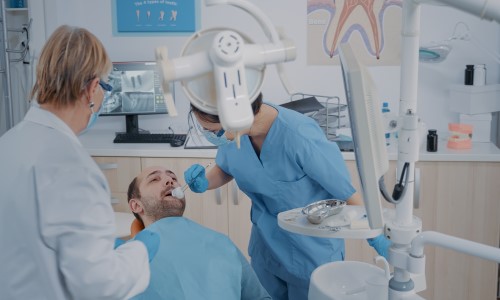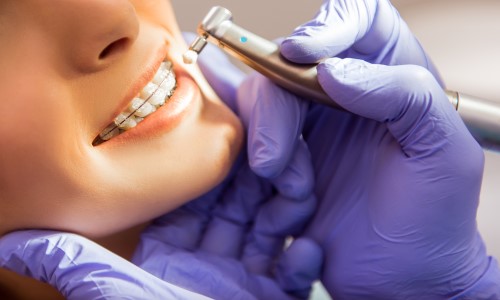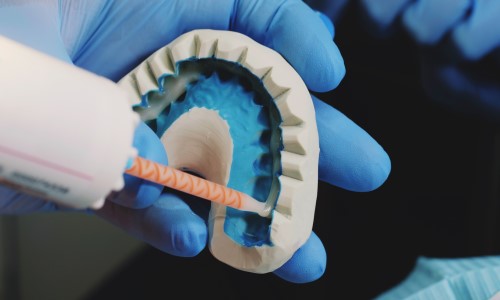Sedation dentistry is the use of sedative medications to reduce anxiety for patients who receive conscious sedation during dental treatment. Another term used in this situation is “twilight sleep.” The goal of sedation dentistry is not to “knock you out” but only to make you relaxed and comfortable.
Sedatives work by slowing down your central nervous system. Sedation dentistry usually requires the dentist to prescribe a sedative, which you take before your appointment or during a mid-appointment break. You may need to wait for about an hour after taking the medication before you can drive home safely.
The type of medication used depends on the treatment being provided. For example, nitrous oxide is a common sedative used for patients who have restorative dental work or tooth extraction. This type of medication is known as a GABA-ergic agent. Benzodiazepines are other medications commonly used in sedation dentistry procedures. 
Medications can be given to you intravenously, through a mask that fits over your nose, or as a pill. Some dentists will also offer sedation options that do not require medications to be given-these are called “non-pharmacological” sedation options.
Benefits Of Sedation Dentistry
1. Ease of Anxiety
Most people who are nervous about visiting the dentist experience some level of anxiety. Sedation dentistry works to reduce this anxiety, making it easier for you to get through your appointment with no pain or discomfort. Because sedatives work by slowing down your central nervous system, they calm both your body and mind. The end result is a comfortable experience that allows you to relax.
2. Reduction in Dental Anxiety
Dental anxiety is an overwhelming fear of the dentist’s office, or anything related to dental treatment. This type of anxiety can affect your overall quality of life because it prevents you from getting the appropriate dental care you need on a regular basis. Sedation dentistry helps you overcome your dental anxiety so that you can receive the care you need over at https://allenwooddental.com
3. Easier Dental Procedures
A lot of people avoid the dentist because they aren’t looking forward to enduring uncomfortable or even painful procedures. If you find it difficult to stay still when having work done on your teeth, sedation dentistry may help you relax enough to get through your appointment with no pain. Sedatives work by slowing down your central nervous system, making it easier for you to stay still during procedures.
4. Minimize Oral Consciousness
When undergoing any type of dental procedure, you are conscious, meaning that you are fully awake and aware of what’s going on around you. However, some people find it more difficult to stay still and keep their eyes closed when the dentist is performing work on their teeth. Sedation dentistry helps you relax enough to remain calm during your appointment so that you can minimize your oral consciousness.
5. Enhanced Pain Suppression
When given sedatives at a high dosage, patients may experience a complete loss of pain sensation during dental treatment. Patients who undergo conscious sedation dentistry often report not feeling any discomfort throughout the appointment. Sedatives work by slowing down your central nervous system, minimizing your body’s response to stimuli that cause you pain or discomfort.
6. More Control Over Your Experience
If you have a low tolerance for pain, sedation dentistry may be the best option for you. Sedatives are often used to calm patients down before certain types of dental work are completed, so they can relax enough to get through their appointment with little pain or discomfort. Some people prefer to have complete control over how they feel during an appointment, in which case sedation dentistry could be the perfect option.
Who Is It For?
Sedation dentistry is a great option for people who have low pain tolerance, suffer from dental anxiety, or have trouble staying still during treatment. However, it may not be the best choice if you have specific medical conditions that prevent you from being properly sedated. For example, patients with low blood pressure should not be given benzodiazepines or opioids because of the risk for blood pressure to drop too low.
Sedation dentistry is an invaluable option for patients who cannot sit still or get through a dental appointment without excessive fear and anxiety. Sedatives work by slowing down the central nervous system, making it easier to relax while undergoing treatment. Sedation dentistry can help you overcome fears of the dentist’s office and receive the care you need in a safe and comfortable environment.



